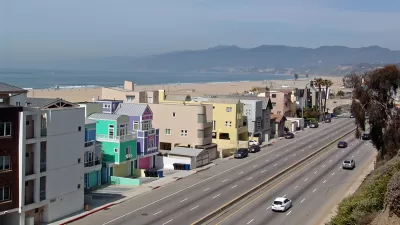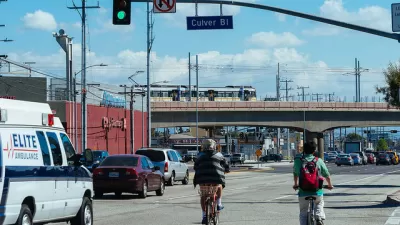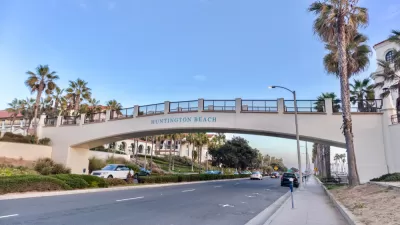Local leaders are challenging state-mandated affordable housing requirements for the 2021-2029 cycle.

In ongoing discussions in the city council, Santa Monica is deciding how to respond to the Southern California Association of Governments (SCAG)'s affordable housing requirement for the 2021-2029 cycle. Some local leaders argue that SCAG's mandate of 9,000 new affordable housing units is unrealistic and doesn't take into account local needs or funding availability, writes Brennon Dixson in the Santa Monica Daily Press.
The Housing Element, a mandatory element of Santa Monica’s General Plan, is "basically a housing needs assessment that features updated demographic data, data on housing stock, identifying barriers to the production of housing — both for market-rate and affordable housing," according to Santa Monica Planning Director Jing Yeo. Some members of the city council are balking at the new number, which doubles the requirement from the last cycle. "I understand that as much as we all espouse our love for affordable housing, we have to acknowledge there are people in our community who feel that the RHNA numbers are real lemons," said Councilmember Kevin McKeown, adding that funding the new affordable housing units, estimated at $3.5 to $5 billion, is a significant challenge.
Councilwoman Gleam Davis defended the state's affordable housing plan, calling it a "moral obligation" to the people who live and work in Santa Monica. "By providing more housing, we will actually be able to make people’s lives better," she said.
Other Southern California cities, including Pasadena and Beverly Hills, have challenged SCAG's decisions for the upcoming cycle, setting the stage for a delicate balancing act between local control and California's dire need for more housing.
FULL STORY: Housing Element discussions continue

Planetizen Federal Action Tracker
A weekly monitor of how Trump’s orders and actions are impacting planners and planning in America.

Congressman Proposes Bill to Rename DC Metro “Trump Train”
The Make Autorail Great Again Act would withhold federal funding to the system until the Washington Metropolitan Area Transit Authority (WMATA), rebrands as the Washington Metropolitan Authority for Greater Access (WMAGA).

The Simple Legislative Tool Transforming Vacant Downtowns
In California, Michigan and Georgia, an easy win is bringing dollars — and delight — back to city centers.

The States Losing Rural Delivery Rooms at an Alarming Pace
In some states, as few as 9% of rural hospitals still deliver babies. As a result, rising pre-term births, no adequate pre-term care and "harrowing" close calls are a growing reality.

The Small South Asian Republic Going all in on EVs
Thanks to one simple policy change less than five years ago, 65% of new cars in this Himalayan country are now electric.

DC Backpedals on Bike Lane Protection, Swaps Barriers for Paint
Citing aesthetic concerns, the city is removing the concrete barriers and flexposts that once separated Arizona Avenue cyclists from motor vehicles.
Urban Design for Planners 1: Software Tools
This six-course series explores essential urban design concepts using open source software and equips planners with the tools they need to participate fully in the urban design process.
Planning for Universal Design
Learn the tools for implementing Universal Design in planning regulations.
Smith Gee Studio
City of Charlotte
City of Camden Redevelopment Agency
City of Astoria
Transportation Research & Education Center (TREC) at Portland State University
US High Speed Rail Association
City of Camden Redevelopment Agency
Municipality of Princeton (NJ)





























